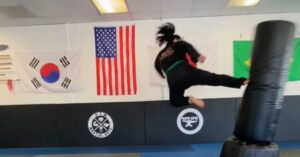
My Adoption Story part 14
My Story Without the Word Adoption
INTRO:
“And what if we were to scratch the word adoption all together when we tell our stories?
The word adoption taints people’s perception.
If I say I am adopted it becomes hard for many to understand the underlying pain and suffering in my story.
They expect a happy story full of gratitude.
So, I wrote my story down all over, my adoption story, same as before, but without mentioning the word adoption even once.
The word adoption is tainted.
I am no longer using it in my story.”

The intro above is quoted from the caption to a post I made recently on social media. What follows, is my story, re-written, without the word adoption. Not to avoid talking about adoption, but to avoid people’s preconceived notion of adoption hindering them from hearing my story for what it is, a story of loss, a story of survival, and a story of resilience, not just thanks to adoption, but moreso in spite of adoption.
A Black Hole; the First Two Years of My Life
I call the first two years of my life a black hole, not because I was too young to remember anything, but because I don’t have much of a way of finding out anything from then. I grew up not knowing the beginning of my own story. I still don’t know it and don’t know if I ever will.
When I was younger I would tell everyone I didn’t care to know. I was born in Colombia, supposedly in 1984. Under circumstances unknown, I lost my mother and my family and I am said to have been brought to the police by an unknown woman who claimed to have found me in the street of Medellin.
Apparently, she had me for a month and couldn’t locate my mother, so she gave me to the police. My picture was published in a local newspaper, saying my name was unknown and my parents were unknown. An address was provided for where to claim me, but no one came.
This meant I was labeled abandoned, and after some time in a temporary home, I was brought to Sweden, where I became part of a new family and where I grew up. I don’t know what date I was born. I don’t know what name my mother gave me. I don’t know if I have a family who is missing me, looking for me, waiting for my return to them in Colombia.
I have no access to my medical history and I no way to obtain it.

I grew up unaware of this, or at least in denial about it, rejecting the idea that my origins mattered and denying all the feelings and thoughts connected to it.
I went through the trauma of losing my family, followed by being removed from my country, to never being able to fully feel at home in my new country, and not connecting naturally with my new family. Within the first two years of my life all ties, legal, emotional and physical, were broken to everyone and anything that would have been familiar to me.
This would have life long consequences such as guilt for not feeling like a good daughter who loved the only family she had ever known, like impulsive decisions based on an unhealthy desire to belong, an inability to own up to mistakes rooted in deep fear of further abandonment.
When I was 26 years old I met a biological relative for the first time. My oldest daughter. It was the first time I could look at a person and see physical similarities and really feel a bond to another human being, in my heart.
Before then, denial had made for a sense of comfort growing up instead of having to face the truth that I had suffered early childhood trauma and lived in survival mode as a consequence of the separation and loss I had been through at such a young age. I have no information about what happened to me during my first two years of my life.
And it took until well into adulthood for me to open that Pandora’s box of emotions and walk through a storm of grief, hurt, trauma and fear. After an entire life of denial, followed by years of digging deep into myself, realizing who I am, where I come from, what I have been through and how that has all affected me, today I can finally say that I am authentically me. But it took breaking apart, loosing myself and going through days so dark I doubted I would ever find a way back to the light. I call that my eat-pray-love moment.
I had to build a new version of myself, from the ground up.
In the end, the adult version of me became the first person to comfort and validate the child version of me.
Even though I am no closer to knowing today, I have been able to connect dots between some of my behavior and my experience. I understand why it’s hard for me to let people in. I understand why I mentally shut down under pressure. I understand why it’s so easy for me to pick up and move and leave a place and I understand why I don’t attach to places, things or even people. I understand why the most important thing about the people I trust is that they make me feel emotionally safe and I understand why sometimes I really struggle with remembering what happened in a situation or conversation.
These all fall withing the scope of what could be trauma responses and coping mechanisms.
Today I work hard on myself and my well being. I have accepted my feelings regarding my experiences, and THAT has been crucial to my being able to move forward and being less overwhelmed (triggered); accepting my feelings and thoughts in response to the situation, allowing myself not to accept the situation.
I have understood that healing is a life long process.
I will search for my family one day and try to find out what happened to me so that I can give my daughters half of their history, so they never have to feel incomplete the way I have all my life.
I share my story openly now and I work towards my dream of inspiring, motivating, and helping others find their truth and gain the courage to use their voice to tell their story.
I believe we all have a story and in sharing it, we take control, and we can connect with others who share similar stories.
I thank you from the bottom of my heart, for spending this time with me, reading my story.
If you would like to share your story, I would love to connect with you and help you share it here alongside mine.
Own your story, share your story, write your story.
All my love to all of you.
– Amanda Medina
PS. We are all in this together!
Amanda Medina
About Us
This Adoptee Life is a place where adoptees can explore their story, share their experience, and express what they’ve lived through—supported by a community that understands.

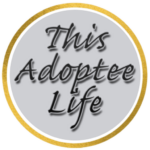
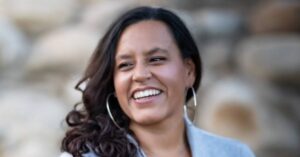


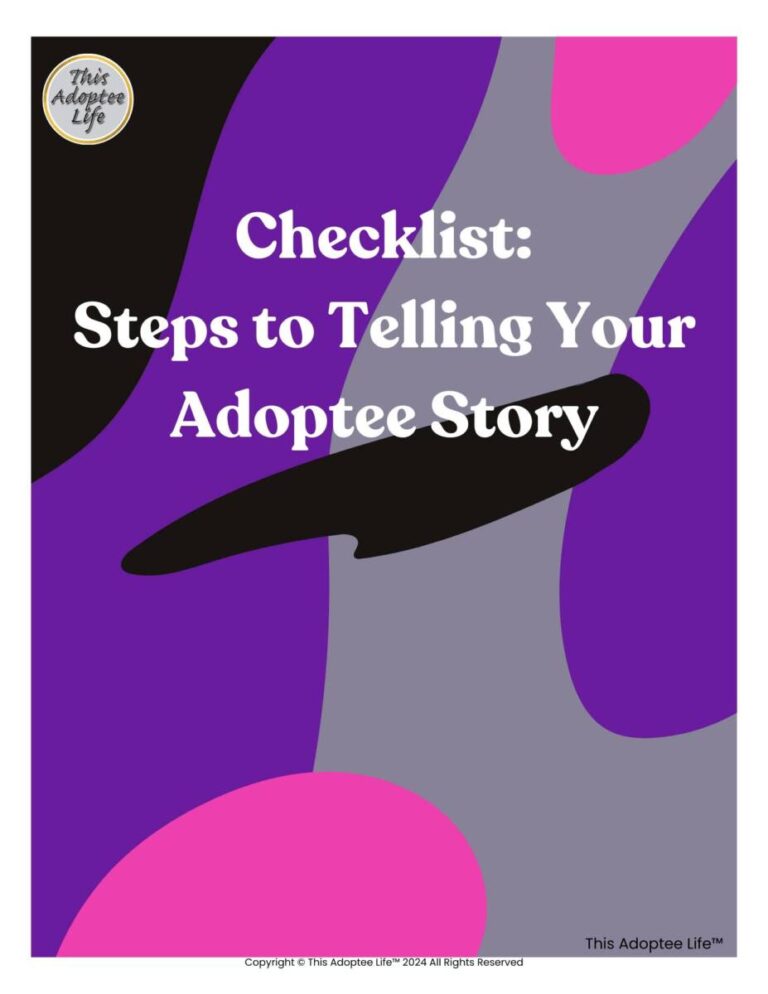
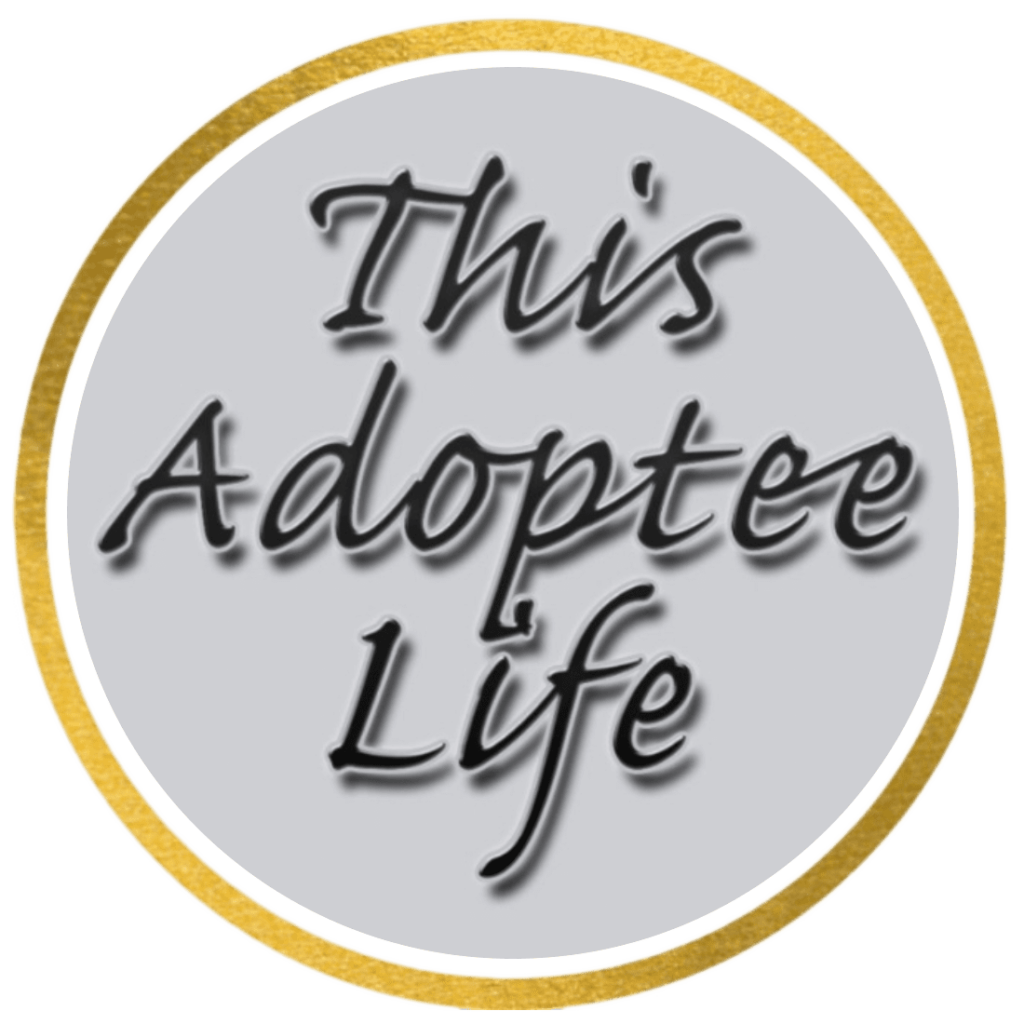
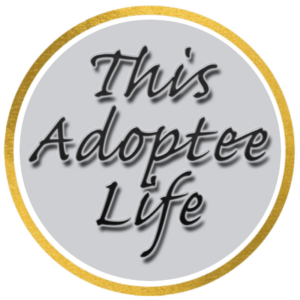
2 thoughts on “My Adoption Story part 14”
After reading this post I can say that you are a truly amazing person Amanda, and very strong! Thank you for sharing this..Sending hugs to you! 💖
-Sarah
Hi Amanda,
I’m an adoptive parent living outside my native country and my adopted child is from my native country. We plan to stay connected to his roots as much as possible. Do you have advice to adoptive parents?
Prithvi